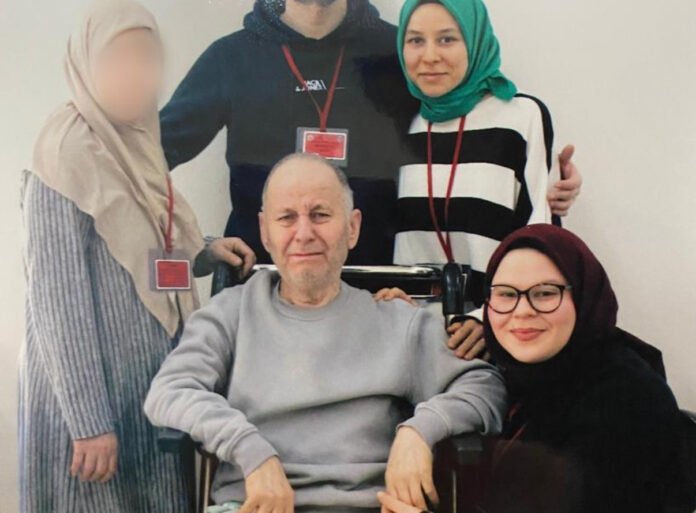İbrahim Güngör, a 73-year-old Alzheimer’s patient imprisoned over alleged links to the faith-based Gülen movement, died in a Turkish prison on the night of September 7 after months of repeated pleas from his family for his release on health grounds were ignored, the TR724 news website reported.
Güngör, who also suffered from diabetes and prostate problems, had been hospitalized several times in recent weeks. In late August, he was transferred from Menemen Prison to İzmir City Hospital with respiratory failure and a high fever. He was treated in intensive care before being returned to prison despite his critical condition.
Turkish President Recep Tayyip Erdoğan has been targeting followers of the Gülen movement, inspired by the late Muslim cleric Fethullah Gülen, since corruption investigations revealed in 2013 implicated then-prime minister Erdoğan and some members of his family and inner circle.
Dismissing the investigations as a Gülenist coup and a conspiracy against his government, Erdoğan began to target the movement’s members. He designated the movement as a terrorist organization in May 2016 and intensified the crackdown on it following the abortive putsch in July of the same year that he accused Gülen of masterminding. The movement strongly denies involvement in the coup attempt or any terrorist activity.
Güngör’s health had steadily declined in prison since early January, and during previous visits he failed to recognize his daughter. Due to health concerns, the family had appealed to the authorities for his immediate release, as is provided for by law.
According to Law No. 5275, the sentence of a prisoner who, due to a serious illness or disability, is unable to manage life on their own under prison conditions and who is not considered a serious or concrete danger to society, may be suspended until they recover. However, the stipulated suspension of sentence is often not implemented.
Turkey’s Council of Forensic Medicine (ATK) had ruled that Güngör was fit to remain in prison.
The ATK frequently comes under criticism over its questionable reports that find ailing inmates fit to remain in prison. Rights advocates slam the agency over its lack of independence from political influence and its role in compounding the persecution of political prisoners.
Güngör, sentenced to over eight years, was arrested on December 14, 2024 and sent to prison in İzmir after Turkey’s Supreme Court of Appeals upheld his conviction.
Charges against Güngor included hosting religious gatherings with members of the Gülen movement, encouraging participation in movement activities and collecting donations for students. He was director of student affairs at İzmir Gediz University, a Gülen-linked institution that was closed down by a government decree after a 2016 coup attempt.
In 2022, before his imprisonment, he underwent brain surgery for hydrocephalus, an abnormal buildup of cerebrospinal fluid deep within the brain, and a shunt was implanted to alleviate the pressure.
His daughter previously described the unsanitary conditions of his confinement as unsuitable for someone in his condition. “He can’t manage basic personal care like bathing or changing clothes,” she said. “At home, he couldn’t even use the bathroom alone due to balance issues. If he falls in that cell, no one will be there to help him. We fear for his life.”
Turkish authorities have frequently been criticized for their systematic disregard of the health needs of prisoners. Every year, rights groups report the death of dozens of sick prisoners, either while behind bars or shortly after their release, which often comes at the end-stage of their illness. Turkey recorded 709 deaths in prison in the first 11 months of 2024, according to data from the Ministry of Justice shared in response to a parliamentary inquiry.















